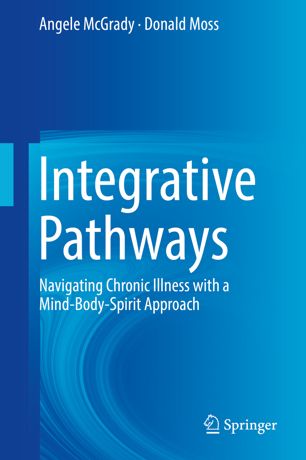

Most ebook files are in PDF format, so you can easily read them using various software such as Foxit Reader or directly on the Google Chrome browser.
Some ebook files are released by publishers in other formats such as .awz, .mobi, .epub, .fb2, etc. You may need to install specific software to read these formats on mobile/PC, such as Calibre.
Please read the tutorial at this link: https://ebookbell.com/faq
We offer FREE conversion to the popular formats you request; however, this may take some time. Therefore, right after payment, please email us, and we will try to provide the service as quickly as possible.
For some exceptional file formats or broken links (if any), please refrain from opening any disputes. Instead, email us first, and we will try to assist within a maximum of 6 hours.
EbookBell Team

5.0
20 reviewsThis expansive text offers a comprehensive mind/body/spirit framework for relieving individual patients of the debilitating effects of long-term disease while reducing the public burden of chronic illness. It introduces the patient-centered Pathways Model, featuring a robust scientific base for psychotherapy, complementary and alternative modalities, and a religious/spiritual element, in progressive levels of treatment from self-help to professional help. Chapters spotlight component skills of the model, including treatment planning, patient rapport, and choosing therapies for optimal well-being. The authors advocate for interventions ranging from lifestyle change to mindfulness, and biofeedback to pastoral counseling. In addition, in-depth case studies detail memorable patient journeys from diagnosis and referral to assessment, engagement in treatment and outcome.
Among the topics covered:
· Mind, body, and spirit in chronic illness.
· The need for an integrative model to support comprehensive health-supportive change.
· Chronic disease from a functional medicine perspective.
· Mechanisms by which religious engagement and religion-based variables affect health.
· Complementary and integrative medicine for the Pathways Model.
· PLUS: Pathways approaches to chronic pain, caregiver stress, diabetes, mood disorders, PTSD, brain injury, heart disease, cancer, and more.
Emphasizing patient individuality and clinician creativity, Integrative Pathways models a compassionate approach to lessening persistent suffering for use by health psychologists, physicians, counselors, health coaches, and other practitioners involved in complementary and integrative medicine, pain medicine, and rehabilitation.
“The Pathway Model addresses what clinical researchers in the field have been calling for, a research-based approach to health and wellness that clearly explains important concepts and provides an optimal foundation from which to approach health interventions.”
Patrick R. Steffen, PhD, BCB, Brigham Young University